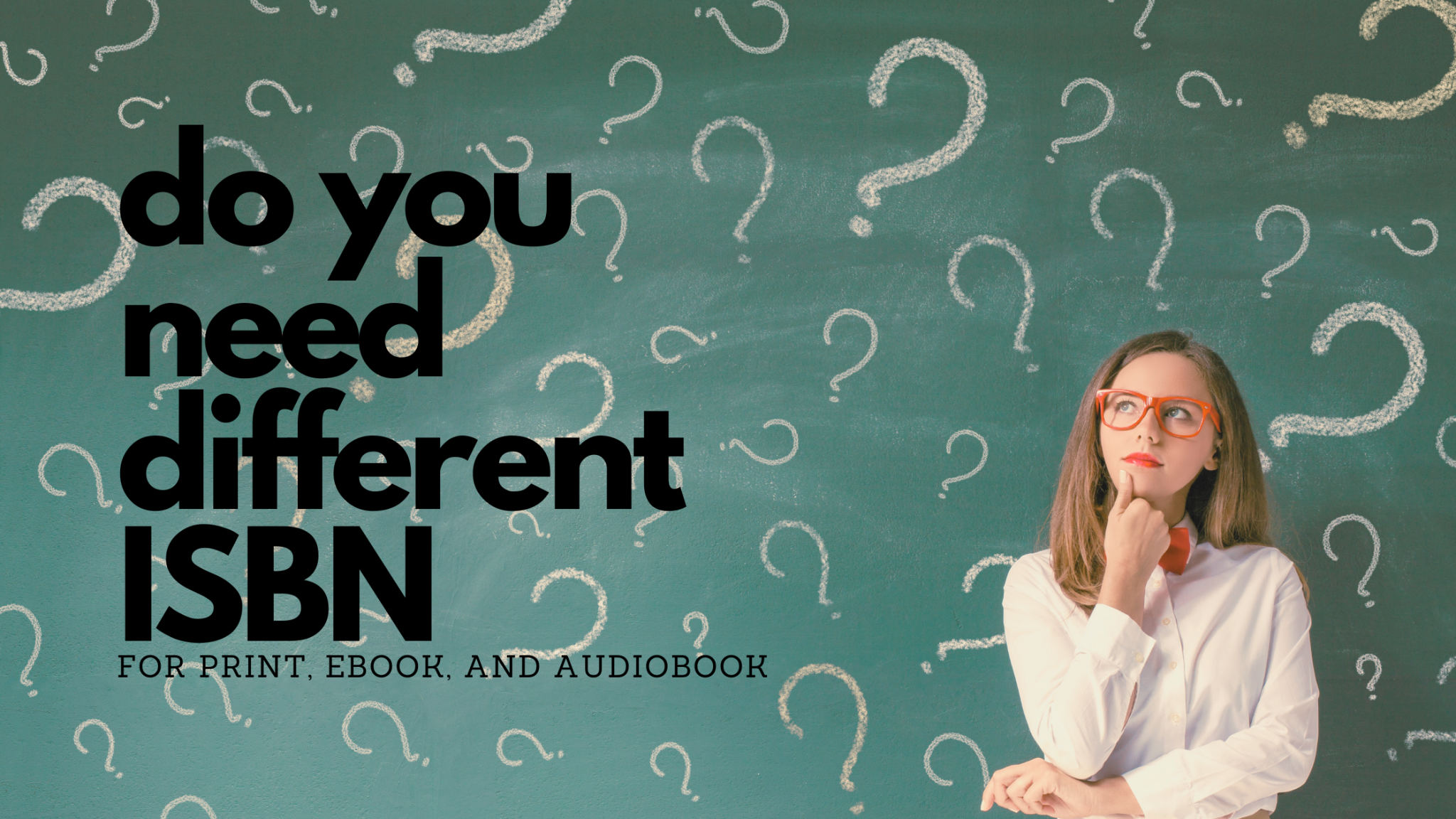
If you’re preparing to publish your book in multiple formats, print, eBook, and audiobook, you’ve probably encountered a common question: Do I need a different ISBN for each version? The short answer is yes, but understanding why and how is crucial for authors, publishers, and anyone distributing books across channels. Let’s explore the reasons behind this, the nuances for each format, and how to manage ISBNs effectively in a multi-format publishing strategy.

Just like a paperback and a hardcover edition are treated as separate products with different price points, dimensions, and sometimes content (like a foreword or appendix), eBooks and audiobooks also differ in structure, file type, and use-case.
Distributors like Ingram, Baker & Taylor, and wholesalers rely on ISBNs to manage orders, supply chain logistics, and inventory. If all formats shared a single ISBN, confusion in cataloging and fulfillment could arise, leading to customer service issues or revenue loss.
Libraries using systems like WorldCat or MARC records (Machine-Readable Cataloging) need distinct ISBNs to ensure they can catalog different formats correctly. Without format-specific ISBNs, discovery tools can’t differentiate between an audiobook and a hardcover.
Let’s break it down:
|
Format |
Need a Unique ISBN? |
Details |
| Paperback | ✅ Yes | Even if the content is identical to the hardcover. |
| Hardcover | ✅ Yes | Different physical format. |
| eBook (ePub) | ✅ Yes | Separate from print and other digital formats. |
| eBook (PDF) | ✅ Yes | Ideally it should be different from ePub/Mobi. |
| eBook (Mobi) | ✅ Recommended | Some retailers (e.g., Amazon) use ASIN instead, but it’s good practice to assign ISBNs. |
| Audiobook (MP3) | ✅ Yes | Each audio format (download, streaming, CD) ideally gets its own. |
| Audiobook (CD) | ✅ Yes | Treated as a physical product. |
| Bundled Editions | ✅ Yes | If you sell a package of print + digital, it gets its own ISBN. |

Managing multiple ISBNs across formats might feel overwhelming at first, but here are a few tips to simplify the process:
Track all ISBNs in a spreadsheet with columns for:
If you’re planning multiple formats, purchase a block of ISBNs instead of individual ones. This ensures consistency and can save costs long term.
When assigning an ISBN, ensure that the accompanying metadata matches the format. Wrong or duplicated metadata may lead to misfiled records or incorrect listings.
Plan your publishing formats early in your production cycle so you can assign ISBNs before release and submit to catalogs like ISBN Services, Nielsen, or Books In Print.
Publishing in multiple formats is a smart way to reach different readers, but it comes with logistical responsibilities, one of which is proper ISBN management. Assigning unique ISBNs for print, eBook, and audiobook formats is not only a best practice but a foundational requirement for professional distribution. It ensures your book is correctly identified, cataloged, and available wherever readers shop, borrow, or listen.
Whether you’re an indie author managing your catalog or a small press planning a product launch, understanding ISBN rules will help you build a solid infrastructure for long-term success in publishing.
A: No. Each physical format is considered a separate product and must have its own ISBN.
A: Audible via ACX doesn’t require ISBNs, but if you plan to distribute the audiobook elsewhere (libraries, retail channels), you should assign one.
A: Technically, yes, each version is a separate product. However, some retailers don’t require this, and you may choose to assign one ISBN for all digital formats if distribution channels allow.
A: An ASIN (Amazon Standard Identification Number) is unique to Amazon and only works on their platform. It cannot replace an ISBN for wider distribution.
A: You can, particularly for eBooks or audiobooks on platforms that don’t require one (like Amazon or Audible), but not having an ISBN limits your reach, discoverability, and professionalism.
